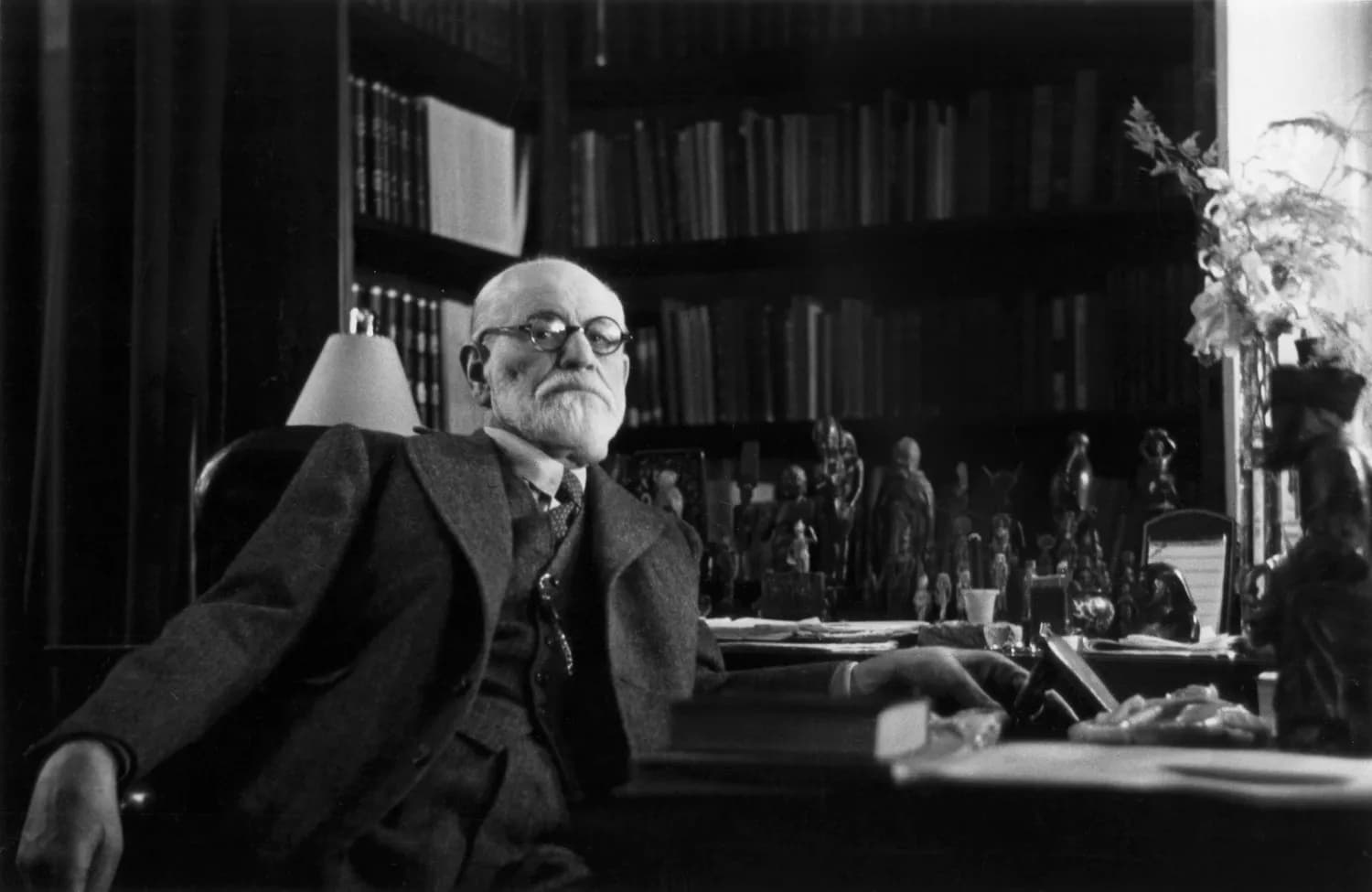Psychodynamic Theory

The brainchild of Sigmund Freud, (1856-1939)1 often called the Father of Psychoanalysis, who learned about the use of hypnosis whilst at the university & General Hospital in Vienna, but later developed the idea of getting patients to lie down and talk without prompting. He analysed what they said, focussing on the unconscious, and “Psychoanalysis” was born. Freud believed that what we say, even unintentionally, has meaning and significance. Today the phrase, “Freudian slip” is frequently used to describe a time when we say something we did not mean to say, but which has hidden meaning that reveals what we really think/believe.
The Id, the Ego and the Super-Ego
He divided the personality into three interacting parts, the Id, the Ego and the Super-Ego;
- Id, instinctive, demanding instant gratification is about survival e.g. hunger, sexual urges and safety2.
- The Ego develops to control the powerful desires and urges of the Id. Freud saw the Id as a horse, and the Ego as the rider who could bring control and hold back the power of the Id, enabling socially acceptable behaviour.
- The Super-Ego develops as the moral judge and conscience in the person, attaining to ideals usually learned from parents or society. Its aim is to suppress the Id and to influence the judgements of the Ego to apply these ideals.
The interaction between the conflicting forces of the Id and the Super-Ego mean that the Ego becomes the balancing force enabling the person to interact with the world without being in internal conflict. A good balance meant a well-adjusted individual, but an imbalance would create stress and anxiety. Freud described the strategies we use to help cope with this imbalance as Defence Mechanisms3 - another phrase still in frequent use today. There are many defence mechanisms, such as denial, displacement, or repression.
He also held ideas about the role of sex in a person's psychological development (Psycho-sexual theory) which are now considered outdated. However, phrases like “anally retentive” and “Oedipal Complex” come from his work!
How does it apply in counselling?
The psychodynamic theory looks at influences on the life of the person from their earliest years so therapists use this model when looking back to childhood to determine how past issues affect the present. This helps people understand themselves better, which can aid the process of healing from traumas etc. It can unearth our hidden motivations and can be challenging at times. The analyst is considered an expert, unlike in person-centered theory, where the client is considered to be the expert on themselves.
Refrences:
- Bradford, A. (2016). Sigmund Freud: Life, Work & Theories. Available: https://www.livescience.com/54723-sigmund-freud-biography.html. Last accessed 15th Jul 2020.
- Cherry, K. (2019). Freud's Id, Ego, and Superego. Available: https://www.verywellmind.com/the-id-ego-and-superego-2795951. Last accessed 15th Jul 2020.
- McLeod, S. (2019). Defense Mechanisms. Available: https://www.simplypsychology.org/defense-mechanisms.html. Last accessed 15th Jul 2020.
